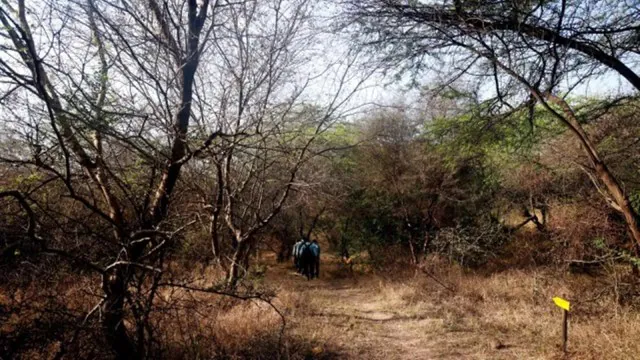The establishment of a commando camp in the forested regions of Assam has hit a roadblock following a red flag raised by the Ministry of Environment, Forest and Climate Change (MoEFCC). Assam’s response to the National Green Tribunal (NGT) sheds light on the complexities surrounding this contentious issue, which intertwines concerns of security, environmental conservation, and indigenous rights.
The proposed commando camp, intended to bolster security measures in the forested areas of Assam, has been met with resistance from environmentalists and local communities alike. The project’s location within forested regions raises concerns about its potential environmental impact, including deforestation, habitat destruction, and disruption of wildlife corridors.
In response to these concerns, the MoEFCC intervened, issuing a red flag and halting further progress on the project. The ministry’s decision underscores the importance of environmental assessments and regulatory compliance in development projects, particularly those located in ecologically sensitive areas.
Assam’s response to the NGT acknowledges the ministry’s concerns while also highlighting the necessity of the commando camp for ensuring security in the region. The state government contends that the camp is essential for combating illegal activities such as poaching, timber smuggling, and insurgent activities that threaten the integrity of the forested areas.
However, striking a balance between security imperatives and environmental conservation remains a formidable challenge. While the need for enhanced security measures is undeniable, it must be weighed against the potential environmental consequences of the proposed commando camp.
Furthermore, the project’s location within forested regions raises questions about its impact on indigenous communities residing in these areas. Indigenous rights and land tenure issues must be taken into consideration to ensure that the project does not infringe upon the rights of local communities or exacerbate existing socio-economic disparities.
The standoff between security concerns and environmental conservation highlights the complexities inherent in development projects located in forested regions. Balancing competing interests requires a nuanced approach that considers the ecological, social, and economic dimensions of the issue.
One possible avenue for resolving the impasse is through meaningful stakeholder engagement and consultation. By involving local communities, environmental experts, and security officials in the decision-making process, it may be possible to identify alternative strategies that address security concerns while minimizing environmental impact.
Moreover, comprehensive environmental impact assessments (EIAs) must be conducted to evaluate the potential consequences of the proposed commando camp on the surrounding ecosystem. EIAs should include rigorous scientific analysis of biodiversity, hydrology, soil composition, and other relevant factors to inform decision-making and mitigate potential negative impacts.
In addition to environmental considerations, the project’s compliance with relevant laws and regulations must be ensured. Any development activities within forested regions must adhere to the Forest Conservation Act, Wildlife Protection Act, and other applicable legal frameworks to prevent illegal encroachments and ensure sustainable management of natural resources.
Ultimately, the resolution of the commando camp controversy requires a multi-stakeholder approach that prioritizes environmental sustainability, indigenous rights, and security imperatives. Collaborative efforts between government agencies, civil society organizations, and local communities are essential for finding common ground and forging a path forward that respects both nature and human security.
In a nutshell, the red flag raised by the MoEFCC regarding the proposed commando camp in Assam’s forested regions underscores the need for careful consideration of environmental concerns in development projects. Balancing security imperatives with environmental conservation and indigenous rights is a complex challenge that requires a holistic approach and meaningful stakeholder engagement. By prioritizing sustainability and inclusivity, it is possible to find solutions that safeguard both the natural environment and human well-being.


